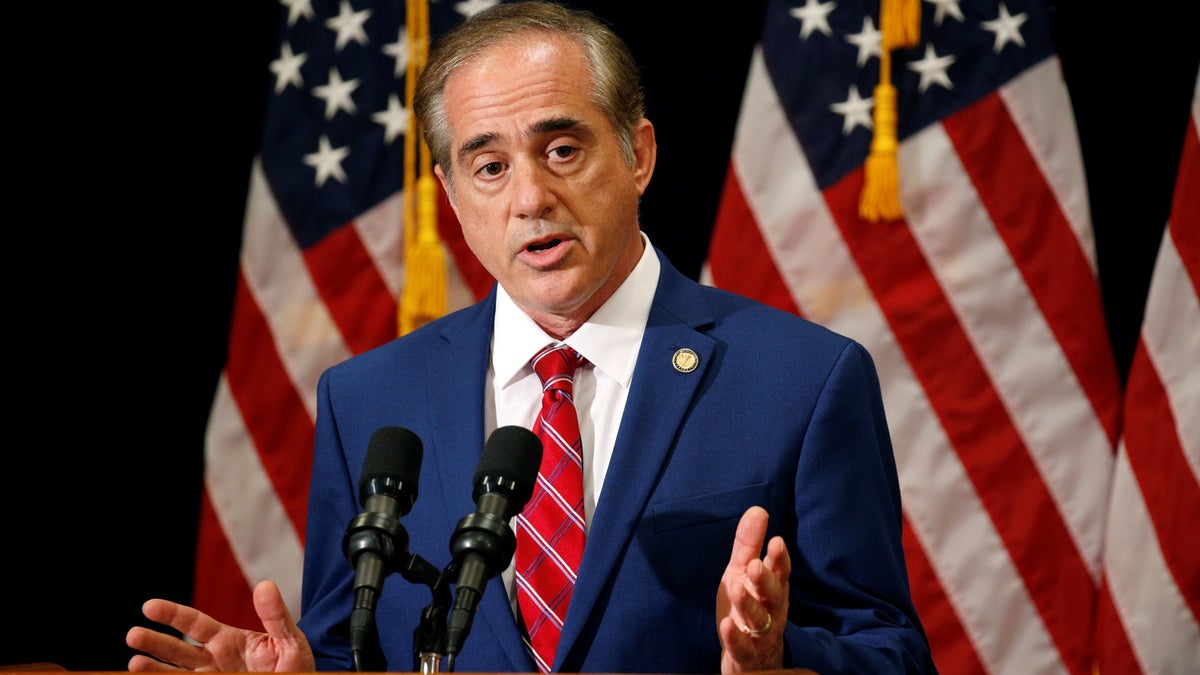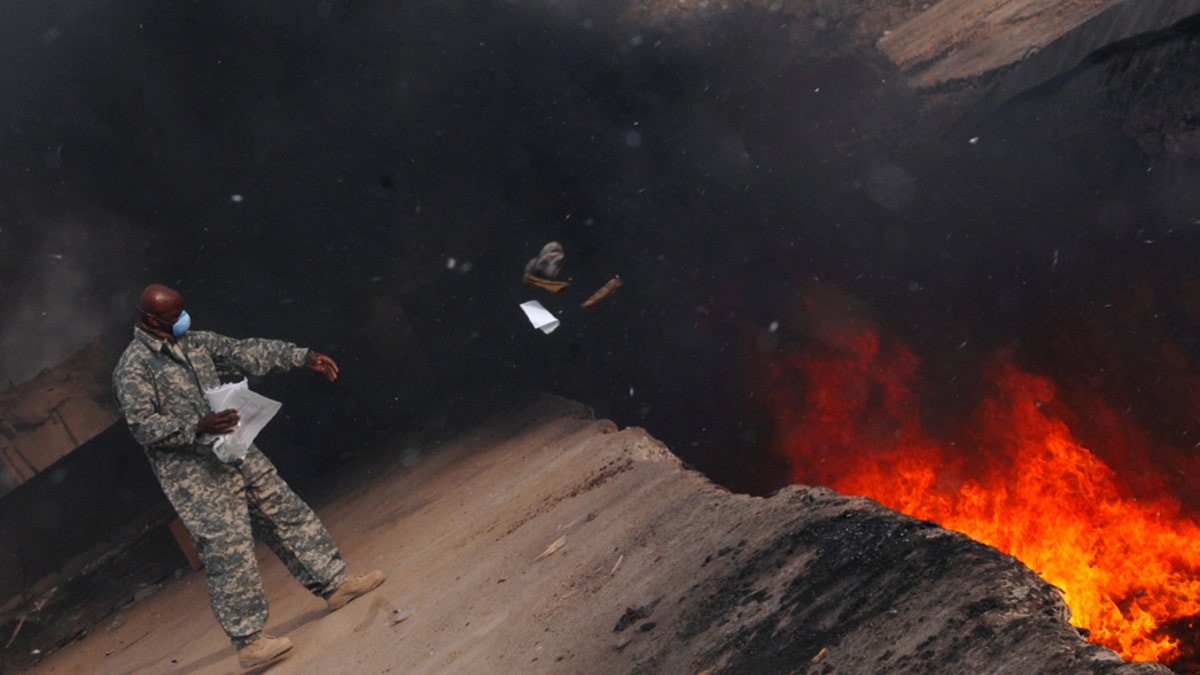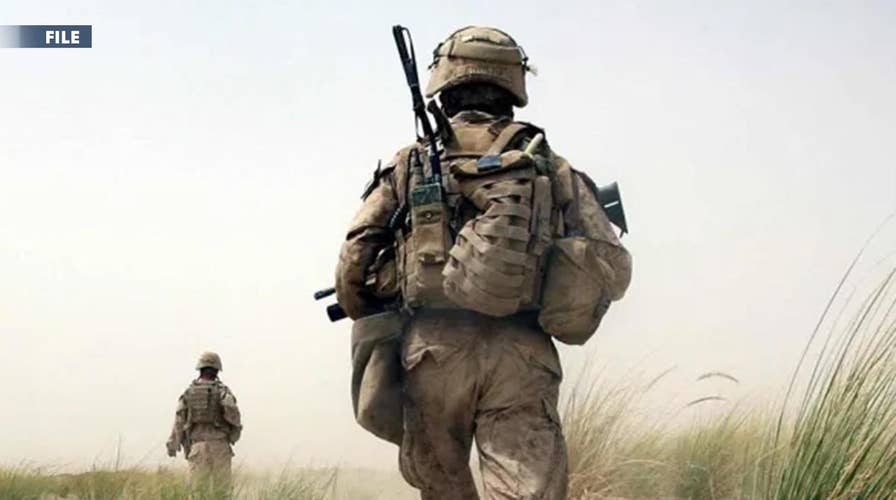Jon Stewart goes back to Washington to fight for veterans
Jon Stewart sets his sights on helping veterans who have fallen ill due to prolonged exposure to burn pits.
Former Veterans Affairs (VA) Secretary David Shulkin tells Fox News the department is not doing enough to provide vital benefits to service members returning from war -- especially those made sick from prolonged exposure to burn pits.
"I think the VA is a terrific organization that does many, many things exceptionally well. But the area that I think that we continue to make the same mistake on, for generations of veterans, is in our benefits area," Shulkin said in a recent interview with Fox News' Investigative Unit. "We put the burden of proof back on the people who need our help, and who are sick. And, we make them show us the scientific evidence and the documentation about how they were injured. And I think that's a backward system."
"We should be giving them the benefit of the doubt," he added. "We should be offering them the help and actually helping them in documenting the evidence for why they may have been injured, or disabled, in their line of service."

David Shulkin was the ninth secretary of the Department of Veterans Affairs. (Reuters/Kevin Lamarque, File)
Shulkin, who left his post as VA secretary in March 2018, has been part of a new coalition working toward helping the nearly 200,000 veterans who've said their health was compromised by their exposure to burn pits while serving overseas.
The Investigative Unit at Fox News has reported extensively on the fears that veterans have been made sick by exposure to fumes from burn pits. Many soldiers said the pits were a crude method of incineration in which every piece of waste was burned, including plastics, batteries, appliances, medicine, dead animals and even human waste.
EXCLUSIVE: TULSI GABBARD PUSHING FOR VA REFORM WITH NEW BURN PIT LEGISLATION
The items often were set ablaze with jet fuel as the accelerant. The pits burned more than 1,000 different chemical compounds day and night. Most service members breathed in toxic fumes with no protection. According to a registry created by the VA, over 200,000 vets said the exposure made them ill, but the department denied assistance to many of them, frequently citing a lack of data connecting illnesses such as rare cancers and respiratory issues to burn pit exposure.
"We should be giving them the benefit of the doubt."
Shulkin, who during his time as VA secretary was working toward similar concerns for Vietnam veterans sickened from exposure to Agent Orange, said the department had apprehensions about listing exposure to the nerve gas agent as a presumptive condition, something he hoped the government could avoid with burn pit veterans.
"I came forward with the recommendation to grant presumptives, but the Office of Management and Budget had concerns about that decision. And, by the way, it's appropriate for them to have concerns and to ask questions," he said. "But, at some point, I think that the question has to be called, and we can't be in a discussion or debate about these issues forever because there are human beings who are at the other end, who aren't getting the help that they need during that time of political discussion."
He continued, "That's what we're trying to avoid with the burn pit issue. We're talking about people who have gone back 15 to 20 years already, who have been exposed in the 2000-2001 Gulf Wars. Frankly, it's time for us to act."
FORMER MARINE SUFFERING FROM BURN PIT EXPOSURE SAYS VA 'LEFT EVERYBODY OUT TO DRY
The coalition, which has included advocacy groups such as the Wounded Warrior Project and Burn Pits 360, recently went to Washington to lobby for the passage of a new bill, which would list burn pit exposure as a presumptive condition for any service member who fought in the wars in Iraq and Afghanistan.

Thousands of U.S. military personnel who served on bases in Iraq and Afghanistan were exposed to the dense black smoke
The Presumptive Benefits for War Fighters Exposed to Burn Pits and Other Toxins Act of 2020, sponsored by Sen. Kirsten Gillibrand, D-N.Y., and Rep. Raul Ruiz, D-Calif., would require the VA to provide health and disability services to Global War on Terror veterans who served in places like Iraq, Afghanistan and other locations where they were exposed to toxins.
Shulkin said listing a presumptive condition of toxic exposure for veterans who served in Iraq and Afghanistan has been vital in providing much-needed assistance.
"We have a system today that's adversarial, where the veteran has to fight, sometimes for years, and appeal over and over again, just to get what's due to them," Shulkin says. "Frankly, that's not a system that's serving us well. That's not serving the country and certainly not serving the veterans well."
The coalition was also joined in Washington by the Feal Good Foundation and comedian-advocate Jon Stewart, who was instrumental in fighting for vital funding that assists 9/11 first responders. They recently have put much of their efforts behind lobbying for veterans exposed to burn pits.

John Feal (left) and Jon Stewart (third from left) recently have partnered with veterans advocate Rosie Torres (second from left) to lobby for a new bill sponsored by Sen. Kirsten Gillibrand (center) that would list burn pit exposure a presumptive condition for veterans who served in Iraq and Afghanistan.
Stewart said in a recent interview with Fox News' Investigative Unit that enough data pointed to a connection between burn pit exposure and the illnesses that thousands of veterans have developed after their service.
JON STEWART BACK IN WASHINGTON IN NEW FIGHT FOR VETERANS LOOKING FOR BURN PIT RELIEF
"The science couldn't be clearer. This is about money," Stewart said earlier this month. "It's always been about money. It continues to be about money. And if we as a country have the money to go to war, you have to have the money to take care of the consequences of -- you know, implementing our warfighters into that scenario."
Stewart said the money has been there to assist veterans, and he believed the classification of presumptive conditions would help them get the health care services they needed.
CLICK HERE TO GET THE FOX NEWS APP
"We've spent $6 trillion on prosecuting the war on terror," Stewart said, "and you're telling me that you're going to adjudicate each individual soldier and make them prove that their cancer is directly related to that burn pit?"
He continued, "People have a misapprehension that soldiers get health care for life. They do not."













































